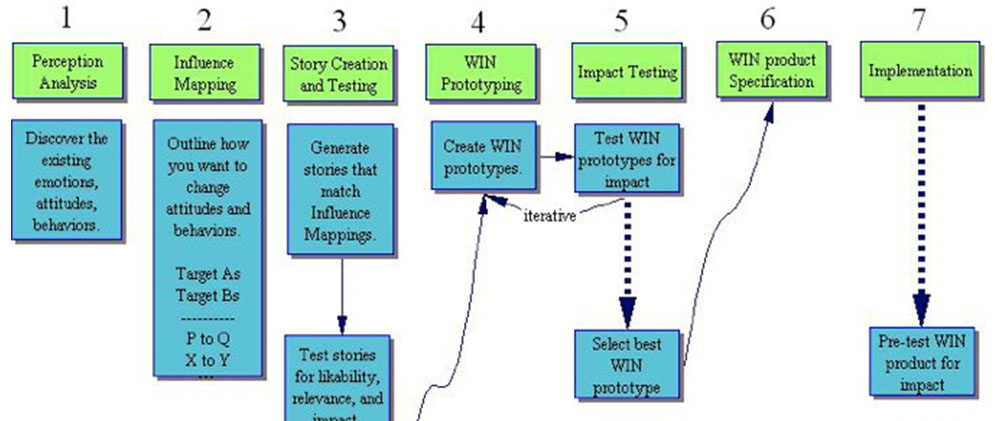Persuasive Narratives Delivered via Mobile Devices: Investigating How Computer Supported Stories Can Change People
From The Theme
LEARNING AND TRAINING
WHAT IF
What if computers could leverage the power of narrative to change what people believe and do?
WHAT WE SET OUT TO DO
We set out to investigate how computers can weave together sequences of interactivity and narrative (what we call “WIN”) to produce an impact more powerful than using either interactivity or narrative alone. Computer supported WIN experiences could lead to large-scale interventions to improve health, enhance learning and training, boost workplace performance, and motivate participation in civic life.
WHAT WE FOUND
In order to better understand the qualities of compelling stories and persuasive impact, we collected and analyzed a variety of experiences that combine interactivity and narrative, including video recordings of first person narratives, relevant literature, interviews with expert practitioners, software products that use WIN for a persuasive purpose, and our own personal WIN experiences.
We used insights from our analysis to develop a mapping, or scale, from interactivity to narrative, as well as a process chart for creating WIN experiences. Our research found that creating effective WIN experiences depends on having compelling stories that promote the target attitude or behavior. The WIN experience begins first with stories that matter, upon which segments of interactivity can be layered.
Next steps involve finding a reliable way to assess persuasive impact, including analysis of text, visual and audio elements. Ultimately, we would like to create WIN experiences for mobile phones.
LEARN MORE
Stanford Persuasive Tech Lab
PEOPLE BEHIND THE PROJECT
 BJ Fogg directs the Persuasive Technology Lab at Stanford University, and is consulting faculty at Stanford’s Graduate School of Education. His work focuses on behavior design, creating insights into how computing products–from websites to mobile phone apps–can be designed to change people’s behaviors. Dr. Fogg has created a new model of human behavior change, which guides research and design. He is the author of Persuasive Technology: Using Computers to Change What We Think and Do, as well as the co-editor of Mobile Persuasion, and Texting 4 Health.
BJ Fogg directs the Persuasive Technology Lab at Stanford University, and is consulting faculty at Stanford’s Graduate School of Education. His work focuses on behavior design, creating insights into how computing products–from websites to mobile phone apps–can be designed to change people’s behaviors. Dr. Fogg has created a new model of human behavior change, which guides research and design. He is the author of Persuasive Technology: Using Computers to Change What We Think and Do, as well as the co-editor of Mobile Persuasion, and Texting 4 Health.
 Angela Booker is an Assistant Professor of Communication at UC San Diego. Her research focuses on the ways youth, families, and schools make use of media and technology for participation, learning, and community development. Dr. Booker received her PhD in Education from Stanford University in 2007.
Angela Booker is an Assistant Professor of Communication at UC San Diego. Her research focuses on the ways youth, families, and schools make use of media and technology for participation, learning, and community development. Dr. Booker received her PhD in Education from Stanford University in 2007.
